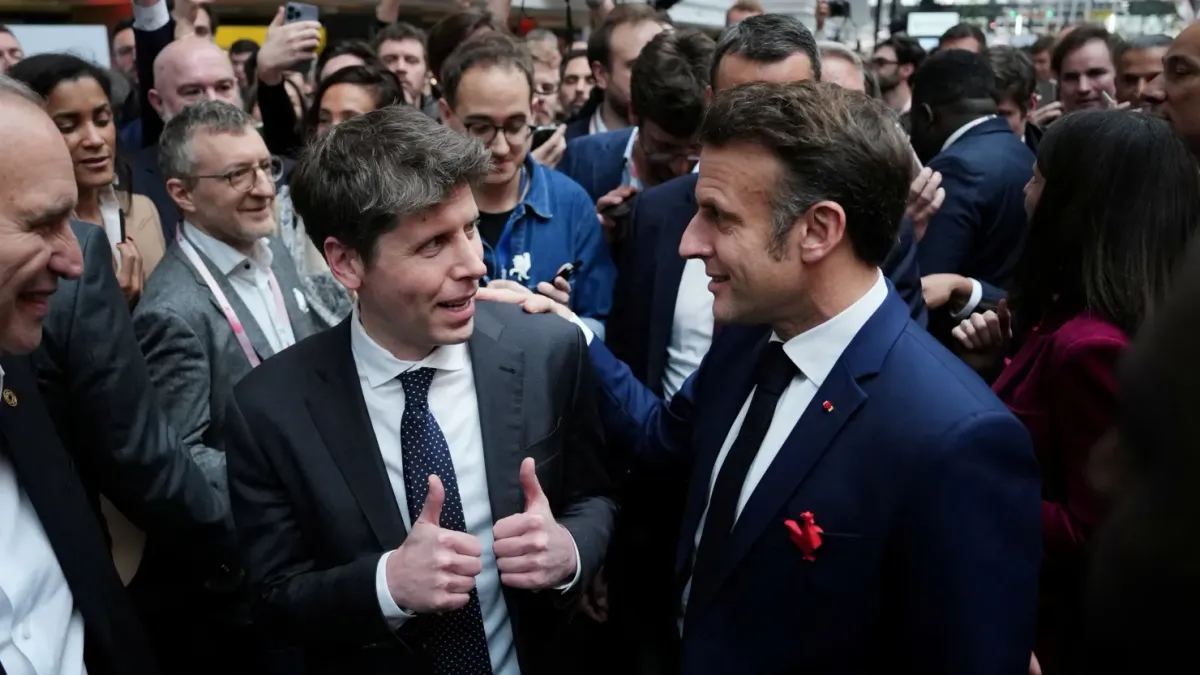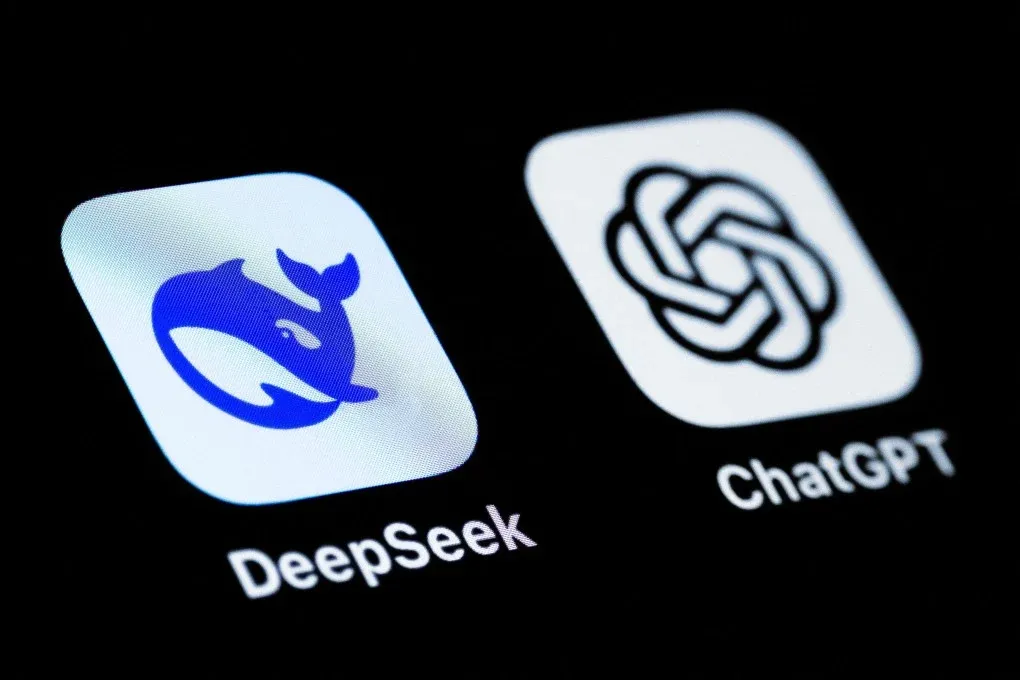Europe’s AI Ambitions: Competing with the U.S. and China to Lead the Innovation Race

Particularly in the technology sector, Europe has long been perceived as a region that values regulation over innovation. Recent events, however, indicate that the continent—headed by France—is keen to shed this reputation and make its mark in the global artificial intelligence (AI) race. Together with the United States and China, Europe is working to establish itself as a major participant through significant investments and political will.
The Change in European AI Policy
At the Paris Artificial Intelligence Action Summit, French President Emmanuel Macron boldly declared that his country is "back in the AI race." This declaration, which emphasized the country's dedication to furthering AI development, came after the announcement of a sizeable 109 billion euro ($112.8 billion) investment in the field.
Following China's unveiling of DeepSeek's AI model and the United States' announcement of its $500 billion Stargate plan, Europe is under pressure to accelerate its AI efforts. These actions demonstrated how the two superpowers still control the development of AI. Europe understands that in order to stay competitive, it must create an atmosphere that supports AI research, commercialization, and industrial use.
Getting Past the Anti-Innovation Attitude
Europe has long been perceived as having a restrictive approach to tech regulation. The first comprehensive AI law in history, the EU's AI Act, went into force in 2024 and has drawn criticism for perhaps limiting innovation. Although the Act seeks to guarantee AI safety and moral advancement, several business executives think it may impede the uptake and expansion of AI.
New AI Entities in Europe
Numerous European AI firms and businesses are making notable advancements in the field in spite of legislative obstacles. Among the important participants are:
Mistral, a French AI startup that competes with OpenAI, specializes in creating massive language models.
Wayve is a UK-based firm that uses artificial intelligence to create driverless cars.
A German business called Aleph Alpha is developing enterprise-ready core AI models.
Alphabet currently owns DeepMind (UK), a pioneer in AI research and development.
Hugging Face (France): A well-known business that specializes in open-source AI models and AI-powered natural language processing.
These businesses show that Europe has the skills and capacity to compete with the world's leading AI companies. However, because EU member states have different legislation, scaling up these technologies continues to be difficult.
The Fork in the Road of Regulation
Mario Draghi, a politician and economist, has written a study that emphasizes the need for the European Union to invest more in artificial intelligence. Restrictive legal frameworks make it difficult for companies in Europe to commercialize inventions and grow, according to the report.
Regarding AI regulation, there are differences in Europe, according to Chris Lehane, Chief Global Affairs Officer of OpenAI. Individual nations like France, Germany, and the UK are advocating for a more innovation-friendly climate, even while the EU level seems to support a strict regulatory approach.
At the Paris summit, Lehane also noted a change in the conversation around AI, noting that whereas earlier AI summits prioritized safety, this one placed more emphasis on leveraging AI's potential. This suggests that Europe might be adjusting its strategy to strike a balance between innovation and regulation.
Europe as the ‘Referee’ in the AI Race Despite Europe's ambitions, some industry leaders believe that the region risks becoming a mere "referee" in the AI race between the U.S. and China. LinkedIn co-founder and Greylock investor Reid Hoffman likened Europe’s role to that of a World Cup referee, stating that if Europe only enforces rules rather than competes, it will not win.
Companies and certain European countries contend that overly stringent regulations could impede the development of a structured AI ecosystem, despite the EU's AI Act's stated goal. Orange's CEO, Christel Heydemann, voiced worries that the regulatory weight in Europe is impeding innovation. She is still hopeful that Europe can lead the world in AI, nevertheless.
Education's Function in Retaining Talent
The development and retention of talent is another essential component of Europe's AI push. Due to more financing and possibilities, many of Europe's leading AI engineers and researchers have historically relocated to the United States. European governments and academic institutions are putting more emphasis on sponsoring AI research and education in an effort to buck this trend.
To link AI researchers around the continent, the European AI Research Network (EARN) was just established.
Research and innovation in AI has received billions of dollars from the Horizon Europe Program.
To keep local talent, France and Germany are funding PhD programs with an AI concentration.
In order to maintain Europe's competitiveness in AI research and development, these initiatives seek to establish a strong pool of AI expertise.
In the AI race, Europe is at a turning point. Its tech sector is still characterized by regulation, but it is becoming increasingly clear that encouraging innovation is just as important. Europe can become a powerful force in the AI sector by boosting investment, assisting AI entrepreneurs, and implementing more lenient regulations.
According to Heydemann, "Europe wants to be a continent of AI, and the race is not over yet." Europe can take the lead in the AI revolution rather than act as a regulator if it makes smart investments, works with the private sector, and prioritizes scalability.

Questions and Answers (FAQs)
Why has Europe been seen as lagging in AI innovation?
Europe has historically focused on stringent regulations, such as the EU’s AI Act, which prioritizes ethical AI development but has been criticized for stifling innovation. This has led to challenges in scaling AI startups and commercializing AI research compared to the U.S. and China.
How is France leading Europe’s AI push?
France, under President Emmanuel Macron’s leadership, has announced a 109 billion euro investment in AI. The country is home to key AI companies like Mistral and Hugging Face and is actively working to position itself as a global AI leader.
What are some key AI companies in Europe?
Several European AI startups are making an impact, including Mistral (France) for language models, Wayve (UK) for autonomous driving, Aleph Alpha (Germany) for enterprise AI solutions, DeepMind (UK) for AI research, and Hugging Face (France) for NLP innovations.
What are the main challenges Europe faces in AI development?
Europe’s main challenges include excessive regulation, difficulty in scaling AI startups, the need for greater investment in AI infrastructure, and talent retention. Additionally, inconsistencies in regulations across EU member states create obstacles for AI companies.
Can Europe compete with the U.S. and China in AI?
While Europe still has a long way to go, increasing investments, political will, and a growing AI ecosystem indicate that it can become a major player. The key will be finding a balance between regulation and fostering innovation while investing in AI education and infrastructure.


